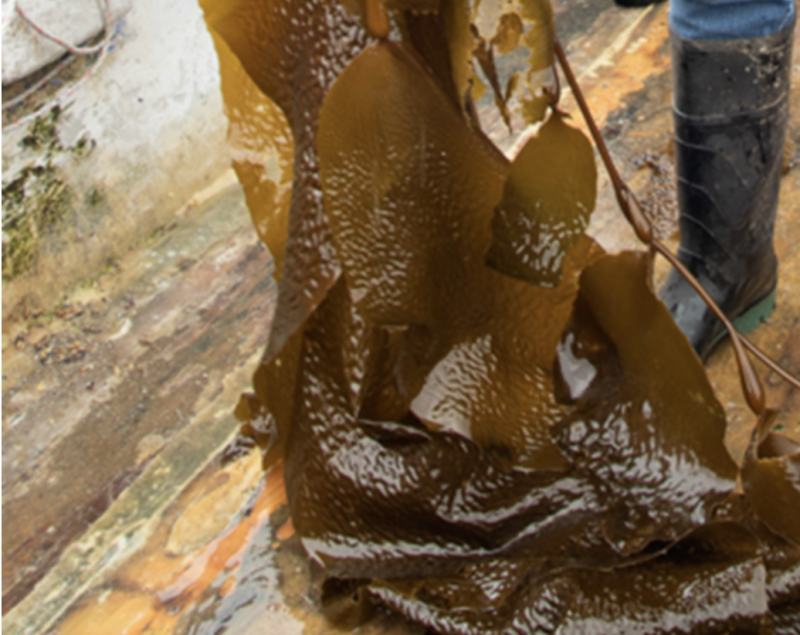Chilean Dairy Sector Leads Sustainability Efforts with Seaweed Innovation

Innovation to Combat Climate Change
Methane, a potent greenhouse gas, is primarily released during the digestive processes of ruminants, making livestock farming a significant contributor to global emissions. To mitigate this, the UST project, in collaboration with the Foundation for Agricultural Innovation (FIA), explores the use of native seaweeds, particularly red and brown varieties, to revolutionize animal feed.
“The project represents our commitment to innovation and sustainability in agriculture and livestock,” said Francine Brossard, FIA’s executive director.
Promising Results and Future Steps
After two years of laboratory trials in the Los Lagos region, initial studies revealed that adding seaweed to livestock feed can drastically reduce methane emissions. Current tests with dairy cows show promising results, indicating potential for broader application in Chile’s dairy sector.
The initiative, scheduled to span four years, is supported by industry stakeholders, including Aproleche Osorno, Agrollanquihue, FuturoCoop, and Seaweed Export Company (SECO).
Harnessing Chile’s Seaweed Potential
Dr. Marcela Ávila, director of the CAPIA Research Center at UST, emphasized Chile’s untapped potential in seaweed cultivation. “Chile has about 400 species of benthic seaweed, yet only 14 are commercially exploited. This project opens the door for sustainable seaweed farming to reduce methane emissions, benefiting both the livestock industry and the environment,” she noted.
Red seaweed species found in northern Chile, from Antofagasta to Valparaíso, have shown promising anti-methanogenic properties. Bromoforene, a halogenated compound present in some seaweeds, inhibits methane-producing microorganisms in the rumen, effectively reducing emissions.
Industry Leaders Support Sustainability
Marcos Winkler, president of Fedeleche and Aproleche Osorno, hailed the project as a game-changer. “This initiative not only aims to reduce methane emissions but also highlights how dairy farmers can play an active role in carbon reduction, contributing to the nation’s sustainability goals,” Winkler stated.
The collaboration showcases the transformative potential of combining science, innovation, and industry efforts to create a more sustainable dairy sector, aligning with global environmental challenges.
By leveraging Chile’s natural resources and scientific expertise, this initiative could set a global benchmark for reducing emissions in agriculture, fostering a more responsible and climate-resilient production model.










